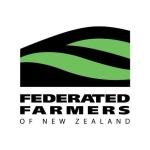Criticism of high country tenure review repetitive and illogical
Federated Farmers is asking Forest and Bird to reconsider recent comments condemning high country tenure review.
“The comments made were not only illogical and repetitive, but also seem to be useful as a car spinning on ice, all noise and no traction,” says Graham Reed, Federated Farmers High Country chairperson.
“Forest and Bird’s comments were supposedly based on a 2009 Landcare Research report, which suggested intensive farming could impact native plants and wildlife. Forest and Bird used this report to conclude that tenure review would adversely affect native plants and wildlife.
“This seems very much a case of one plus one equals five. Another attempt by Forest and Bird to clutch at straws in the land tenure debate.
“What this looks like to me is a very weak attempt to find a scientific base from which to attack tenure review. Not only was this a poor effort, but it’s becoming rather repetitive.
“If Forest and Bird wants to debate high country tenure review, let’s do this in a mature manner using factual information that looks at tenure review directly. Attacking it in roundabout ways is not going to add anything to the debate.
“In most cases, in contrast to what their comments suggest, tenure review assessments actually increase knowledge about a property’s wildlife and plant populations. This information is an important step in ensuring that critical areas get the protection they require.
“It’s also relevant to note that under tenure review, more land has been taken out of agricultural production than has been transferred to freehold.
“Forest and Bird is well aware that large sections of the Mackenzie Basin are already protected under the QEII National Trust or other forms of legal protection, voluntarily provided by the landholder. These help landowners to protect significant natural and cultural features on their land through open space covenants,” Mr Reed concluded.
